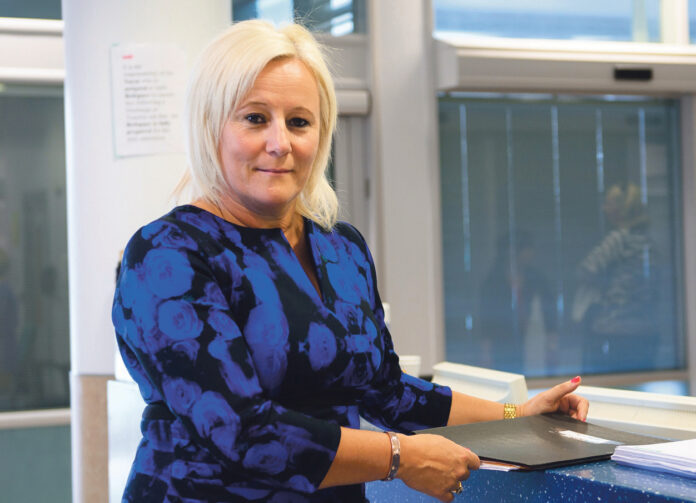
MANAGEMENT at University Hospital Limerick (UHL) has acknowledged a HIQA inspection report that said the number of patients on trolleys in the Emergency Department (ED) is still a major problem, pointing to the fact that nothing will improve until bed numbers match demand at the hospital.
And the Irish Nurses and Midwives Organisation (INMO) has called on the Government to put a “laser focus” on getting admitted patients off trolleys in the overcrowded ED.
INMO Deputy General Secretary, Dr Edward Mathews, said that HIQA’s report “as a follow on from last year’s damning inspection into the hospital is very welcome”.
“The inspection report published by HIQA paints a very bleak picture of what patients face on a daily basis and the conditions nurses are working in in the Ireland’s most overcrowded hospital.

- External Walls: Up to €8,000 Grant
- Attic: Up to €1,500 Grant
- Cavity Walls: Up to €1,700 Grant
- Internal Dry Lining: Up to €4,500 Grant
“The report noted that on the day of inspection that the Emergency Department was over capacity by over three times the recommended number of patients that can be treated there safely.
“UHL has not been found fully compliant when it comes to safe-nurse staffing. This makes the case for safe nurse staffing underpinned by legislation even more pressing. Our members in UHL are working in an environment that has normalised over 9,534 patients on trolleys so far this year. They have had little to no reprieve from overcrowding.
“We need to see a laser-like focus from Government and the HSE to tackling the overcrowding crisis in UHL once and for all.”
Last week, HIQA published a report on its findings at an inspection carried out over two days in February of this year at UHL, which determined that improvements on an earlier inspection had been made but not on bed provision.
Responding, a hospital spokesman said that the report “provides some assurance that measures introduced to improve flow in the hospital and in the community are having a positive impact on patient care”.
“We also welcome the explicit acknowledgement in the report that overcrowding in our Emergency Department will remain the unfortunate reality until the fundamental mismatch between the demand on our services and our inpatient bed capacity is addressed.”
The report reflects an overall increase in compliance with the national standards since the previous inspection. Of the 15 standards assessed in the ED and across the hospital, UHL was found to be compliant in one instance, substantially compliant in seven, partially compliant in five, and non-compliant in two.
The areas of non-compliance relate in the main to physical infrastructure in the older ‘nightingale’ wards and lack of patient dignity and privacy in the ED.
“The compliance plan published with the HIQA report includes measures being taken by UL Hospitals Group to build on the acknowledged progress on integrated care pathways and hospital avoidance; to address staffing deficits; to increase bed capacity; to improve operational effectiveness and other matters, the UHL spokesman said.
“We accept the key finding that continued overcrowding in our ED is an affront to patient dignity and we acknowledge the negative impact this has on patient experience. We apologise to each and every patient who continues to experience excessive wait times in a suboptimal environment. This is not the kind of care we wish to provide to our patients and reducing these wait times is a continued focus for our staff.”
Staffing deficits across a range of disciplines were also highlighted in the report, which the spokesman said “reflects the shortage of healthcare workers, which is challenging care providers around the world”.
Commenting on the report, Professor Colette Cowan, CEO, UL Hospitals Group, said: “Publication of the HIQA inspection report in June 2022 provided a fresh impetus for staff across the acute and community settings to improve processes and introduce new patient flow and hospital avoidance initiatives in line with Slaintecare.
“We have been aided in these efforts by the HSE National Support Team. We have had a particular emphasis on the increasing population of elderly patients with initiatives such as the Geriatric Emergency Medicine Unit at UHL, which opened in October of last year, and the Pathfinder programme where paramedics and allied health professionals assess older persons at home.
“The effect of all these initiatives is starting to have an impact on patient experience times in our ED. We have also seen improvements in triage times and in wait times to see a doctor. These improvements have been marginal to date but they are real.
“The report also accords with the longstanding view of hospital management, the consultant body, and other key stakeholders that we cannot definitively address overcrowding in UHL until our bed capacity and our staffing resources are brought into line with comparable hospitals around the country and internationally.
“We must acknowledge that with the support of Government, we have increased bed capacity at UHL by over 100 and staffing levels by almost 1,000 since the start of the pandemic.
“Capacity remains far short of demand, however, and this is a key finding of the HIQA report. Work is underway on the new 96-bed block for UHL and we welcome the more recent commitment from the Minister for Health that the second 96-bed block at UHL will be accelerated,” Prof Cowan concluded.

